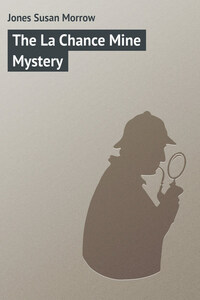CHAPTER I
I COME HOME: AND THE WOLVES HOWL
I am sick of the bitter wood-smoke,
And sick of the wind and rain:
I will leave the bush behind me,
And look for my love again.
Little as I guessed it, this story really began at Skunk's Misery. But Skunk's Misery was the last thing in my head, though I had just come from the place.
Hungry, dog-tired, cross with the crossness of a man in authority whose orders have been forgotten or disregarded, I drove Billy Jones's old canoe across Lac Tremblant on my way home to Dudley Wilbraham's gold mine at La Chance, after an absence of months. It was halfway to dark, and the bitter November wind blew dead in my teeth. Slaps of spray from flying wave-crests blinded me with gouts of lake water, that was oddly warm till the cutting wind froze it to a coating of solid ice on my bare hands and stinging face, that I had to keep dabbing on my paddling shoulder to get my eyes clear in order that I might stare in front of my leaky, borrowed canoe.
To a stranger there might have seemed to be nothing particular to stare at, out on a lake where the world was all wind and lumpy seas and growing November twilight; but any one who had lived at La Chance knew better. By the map Lac Tremblant should have been our nearest gold route to civilization, but it was a lake that was no lake, as far as transport was concerned, and we never used it. The five-mile crossing I was making was just a fair sample of the forty miles of length Lac Tremblant stretched mockingly past the La Chance mine toward the main road from Caraquet – our nearest settlement – to railhead: and that was forty miles of queer water, sown with rocks that were sometimes visible as tombstones in a cemetery and sometimes hidden like rattlesnakes in a blanket. For the depth of Lac Tremblant, or its fairway, were two things no man might ever count on. It would fall in a night to shallows a child could wade through, among bristling needles of rocks no one had ever guessed at; and rise in a morning to the tops of the spruce scrub on its banks, – a sweet spread of water with not a rock to be seen. What hidden spring fed it was a mystery. But in the bitterest winter it was never cold enough to freeze, further than to form surging masses of frazil ice that would neither let a canoe push through them, nor yet support the weight of a man. Winter or summer, it was no thoroughfare – and neither was the ungodly jumble of swamp and mountains that stopped me from tapping the lower end of it – or I should not have spent the last three months in making fifty miles of road through untrodden bush to Caraquet, over which to transport the La Chance gold to a post-road and a railway: and it was no chosen return route of mine to La Chance now, either.
If I could draw you a map I should not have to explain the country. But failing that I will be as clear as I can.
The line of Lac Tremblant, and that of the road I had just made from Caraquet to La Chance, ran away from each other in two sides of a triangle, – except that the La Chance mine was five miles down the far side of the lake from Caraquet, and my road had to half-moon round the head of Lac Tremblant to get home – a lavish curve, too, by reason of swamps.
But it was on that half-moon road that I should have been now, if my order to have a horse meet me at the Halfway stables I had built at the beginning of it had not been forgotten or disregarded by some one at La Chance.
Getting drenched to the skin with lake water was no rattling good exchange for riding home on a fresh horse that felt like a warm stove under me, but a five-mile short cut across the apex of the road and lake triangle was better than walking twenty-two miles along the side of it on my own legs – which was the only choice I had had in the matter.
I was obliged to get home, for reasons of my own; but when I walked in on Billy Jones, the foreman at the Halfway stables, that afternoon, after months of absence and road-making, there was not even a team horse in his stables, let alone my own saddle mare. There was not a soul about the place, either, but Billy himself, blandly idle and sprawling over a grubby old newspaper in front of the stove in his shack.
His welcome was heartening, but his intelligence was not. No one had told him a word about me or my mare, he informed me profanely; also that it was quite impossible for me to ride over to La Chance that night. There were not any work horses at the Halfway, because he had doubled up the teams for some heavy hauling from Caraquet, according to my orders sent over from Caraquet the week before, and no horses had been sent back from La Chance since. He guessed affably that some one might be driving over from the mine in the morning, and that after tramping from Caraquet I had better stay where I was for the night.
I hesitated. I was dog-tired for once in my life, but I had not done any tramp from Caraquet that day, if I had told the bald truth. Only I had no idea of telling it, nor any wish to explain to Billy Jones that I had been making a fool of myself elsewhere, doing a solid week of hospital nursing over a filthy boy I had found on my just-finished road the morning I had really left Caraquet. From the look of him I guessed he had got hurt cutting down a tree and not getting out of the way in time, though he was past telling me that or anything else. But I had also guessed where he lived, by the dirt on him, and was ass enough to carry him home to the squalid, half-French, half-Indian village the Caraquet people called Skunk's Misery.









